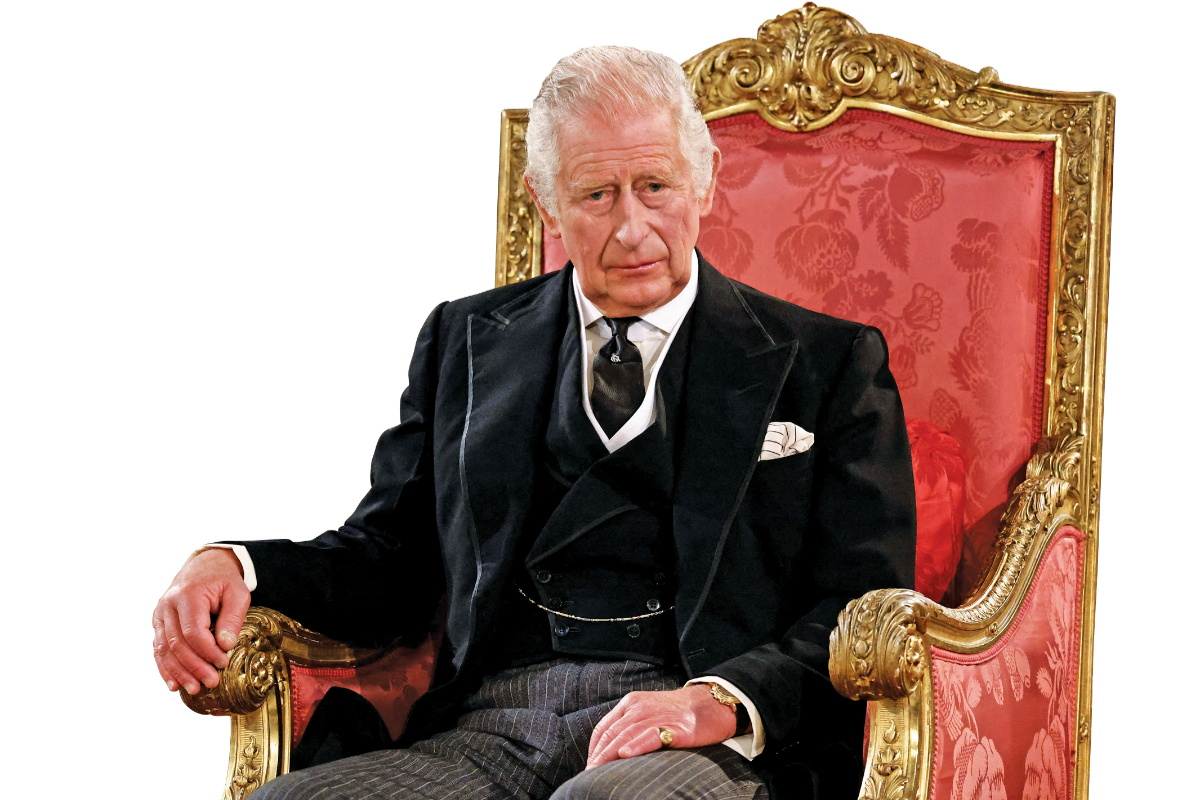
King Charles in the reflection of his letters
In a historic ceremony at St James Palace in London last week, King Charles III, formally took over the throne of Great Britain. On this occasion, the British flag was flown at half-mast to mourn the death of Queen Elizabeth II.
The announcements of the King’s accession to the throne will be made public later. King Charles announced this pledge that he will serve his nation with the same spirit with which his mother served the nation for 70 years. Charles became the King of Great Britain after his mother, Queen Elizabeth, died at the age of 96.
The Coronation Council is a symbolic body that announces the appointment and enthronement of the king. The members of this council include the privy councillors, members of the House of Lords, the Lord Mayor of London, dignitaries of the City of London, the high commissioner of the City of London and the representatives of the Commonwealth. In Britain, when a king dies, the news is usually announced in one breath, “The king is dead, long live the king”. The purpose of this declaration is to declare the continuity of the monarchy.
King Charles was born on November 14, 1948 in Buckingham Palace, London. At the time of birth, his paternal grandfather, King George VI, was alive. His mother had become the heir to the throne of Great Britain. On December 5, 1948, one month and one day after Charles was born. Archbishop of Canterbury Geoffrey Fisher baptised him in the River Jordan. When Charles was born, his grandfather was the King of Great Britain.
On this occasion, one of his maternal uncles, the King of Norway, Frederik Carl George Valdemar, his grandmother Elizabeth Angela, his great grandmother Queen Mary, his aunt Margaret, another uncle of his, Prince George, Johansson and the princes of Denmark and other relatives participated in the ritual baptism.
The royal family of Great Britain have relations with the royal families of Belgium, Russia, Greece and other countries, besides Denmark and Norway. Three weeks before the birth of Charles, his father, Prince Philip, was granted the title of Duke of Edinburgh and his mother, a princess, so that Charles, born 25 days later, would become a prince at birth.
When Prince Charles entered the third year of age, his grandfather King George VI died and his mother assumed the throne of Great Britain under the name of Queen Elizabeth II and named three-year-old Charles as the crown prince.
Charles is the first crown prince who has waited more than 70 years to wear the crown and that wait ended last week.
Charles received his early education at Hill House School in West London. Later, he was admitted to schools in Berkshire and Edinburgh where his father had received his early education. In 1966, he was admitted to Geelong Grammar School in Victoria, Australia. When he returned from there, he was made the head boy at Gordo Stone School in Scotland. His father Prince Philip was also made head boy in the same school.
In October 1967, King Charles was admitted to the Trinity College, Cambridge, where he studied anthropology, archeology and history. The following year he went to the University College Wales where he studied Welsh history and linguistics. Thus, he graduated on June 23, 1970 at the age of 22, but 12 years before graduation, he was given the title of Charles Cooper Prince of Wales on July 26, 1958.
In 1972, Charles Coryell was commissioned as a flight lieutenant in the air force. Earlier, in 1969, he was made honorary colonel in the Chief of the Royal Regiment of Wales. Prince Charles has been awarded 32 military honours and posts in the Commonwealth countries. He holds the post of Colonel in Chief, Colonel, Honorary Air Commodore, Air Commodore Chief, Deputy Colonel in Chief, Royal Honorary Colonel, Royal Colonel and Honorary Commodore.
Since 2009, he has held the second highest rank in all the three Canadian armed forces. On June 16, 2012, Queen Elizabeth II awarded him the honorary five-star rank of all three armed forces of the United Kingdom.
This was in recognition of the valuable services Prince Charles had rendered in support of Her Majesty’s Commander-in-Chief. Although Charles had known Lady Diana since 1977, Lady Diana’s attention during Charles days of mourning over the death of India’s last viceroy, Lord Mountbatten, brought her to the prince attention.
Lord Mountbatten was a member of the royal family and Charles maternal uncle. Prince Charles expressed his desire to marry Lady Diana in February 1981 and the two were married at St Paul’s Cathedral on July 29 the same year. They had two sons, William and Harry. Charles and Diana’s marriage lasted only 11 years.
In December 1992, British Prime Minister John Major announced the separation of the royal couple. Four years later, on August 26, 1996, Charles divorced Lady Diana. A year later, in August 1997, Princess Diana died in a car accident in Paris, so Charles went to Paris with Diana’s sister Sara to collect her body and returned to London.
On February 10, 2005, eight years after Diana’s death, Charles announced his engagement to his long-time lover, Camila Parker. The two also got married, but several years after the second marriage, the royal family had a grudge against Camila Parker. Charles is now a grandfather.
His daughter-in-law Kate Middleton hated her step-mother-in-law Camila Parker and made Charles mother, Queen Elizabeth II, her consort. Charles second son, Harry, ended his relationship with the royal family and moved to Canada.
Below are six letters from Prince Charles. The letter written to the prime minister of Qatar caused a stir in Britain. Letters written by the British prime minister and ministers show why the rope’s curves do not go away even when they are burnt.
——————
Letter to Prime Minister of Qatar Sheikh Hamad bin Jassim
Carnes House
Honourable
I hope you will forgive me for writing this letter, but I am compelled to write it only because of my special concern for the future of this city. This city is the capital of this country. Throughout my life, I have seen many parts of London being vandalised, one after another in the name of “brutal development”. I am forced to mention, with great sincerity, simply because my heart sank when I saw the proposed projects by Qatari Real Estate Investment on the old Chelsea site opposite the Royal Hospital. I sincerely apologise to you for writing on this topic and; thus, interfering. But this place is of great importance to London, and it deserves something appropriate in this regard, as it is opposite the Royal Hospital. I hate to stress this point but I really don’t think I’m the only one concerned about what’s happening with the old Chelsea Barracks site.
I urge you to reconsider the proposed plans for Chelsea before it is too late. If Qatari Real Estate Investment can pass on this precious and settled location in London to future generations, many people will be forever grateful to you.
With best regards and honour
Charles
The letter was signed by Prince Charles by writing
‘Charles’ in Arabic, as well as in English.
——————
Letter to the British Minister of Culture
Highgrove House
October 2004
Dear Joel!!
Have you seen “Team America, The World Police Ever”? I’ve heard that it’s attributed to a wonderful television programme called “The Fictitious Thunderbird”. When I was a boy of seventeen, I used to enjoy it a lot.
I understand that as the Culture Minister you will have a good experience with the latest release films.
Going to the cinema to see a movie these days is very expensive (last time I went to the Kusch Curling Bar, because the prices make the guy stagger and wobble).
I can’t waste taxpayers money like this (mumma is good enough for that hahahahaha) please solve this problem on priority basis.
Sincerely,
Charles
——————
Letter to Luke Scottley, an English jeweller
Brick Hall
September 10, 2012
Dear Luke!!
Thank you for your recent letter informing of your company’s progress. I am extremely happy to hear that you recently got the jewellery sorted. Although economic problems are affecting the country, your affairs are going well.
Your idea to donate to the “Prince’s Trust” from the sale of your silver and jewels used in jewellery is very wonderful. This is your incredible generosity and I know how much it will be appreciated at the Trust.
Also, thank you very much for showing me the wonderful earrings, which you have sent with this letter. Now, I can see how you made great progress.
With this letter I express my acknowledgments and best wishes.
Yours very sincerely
Charles
——————
Letter to the British Minister of Environment,
Food and Rural Affairs
Highgrove House
May 2005
Dear Ms. Beckett!!
I am writing this letter to you in your capacity as the Minister for Environment, Food and Rural Affairs.
You know how they took the mild sweetness from egg whites with tea and cake. It is very soft and delicate and dissolves easily. I still can’t imagine a well-dressed Scotsman slinking away with simplicity like a softie. How could they have done it?
Please resolve this issue on priority basis.
Sincerely,
Charles
——————
Letter to British Prime Minister Tony Blair
Highgrove House
February 2005
Dear Tony!!
If we give Bill Gates the honorary position of Emirate (Vice Bud), will he fix the palace laptop?
I haven’t been able to log into my space account for the past week and I have to accept a friend request from Queen Margaret II of Denmark as soon as possible, because she will be very upset.
Please resolve this matter on a priority basis.
Yours very sincerely,
Charles
——————
Letter to British Prime Minister Tony Blair
Highgrove House
May 2005
Dear Tony!!
How did I get Akon’s song ‘Alone’ as a ringtone on my mobile phone? You are very young and seem to want to know about such things.
The truth is, I can honestly say that I am giddy.
Please look into this matter urgently.
Yours very sincerely,
Charles
Charles inherits throne and queen’s private fortune
King Charles inherits not just the throne after the death of his mother, Queen Elizabeth II, but also her private fortune — without having to pay inheritance tax.
British monarchs are not required to reveal their private finances but according to the Sunday Times Rich List 2022, the queen was worth some £370 million ($426 million), up £5 million on the previous year.
The bulk of the late sovereign’s personal wealth will pass to Charles intact, without the British government getting a slice.
The real royal wealth — the Crown Estate lands and the Royal Collection of art and jewellery, plus official residences and the Royal Archives — is held by the monarchy as an institution.
As such, they will only pass to Charles in trust.
Similarly, The Crown Jewels, estimated to be worth at least £3 billion, only belonged symbolically to the queen and are automatically transferred to her successor.
The queen’s private wealth will be added to Charles’ own, which has been estimated at some $100 million by the site celebritynetworth.com.
In comparison, Elizabeth’s late husband, Prince Philip, left a more modest estate worth £10 million, including an art collection of some 3,000 works, most of which were given to family and friends, the Sunday Times reported.
A court in 2021 ordered his will to be sealed for 90 years.
As king, Charles inherits the Duchy of Lancaster, a private estate of commercial, agricultural and residential assets owned by royalty since the Middle Ages.
The monarch is entitled to use its income and largely uses it to meet official expenditure. In the financial year 2021-22, it delivered a net surplus of £24.0 million.
On the other hand, Charles will lose the Duchy of Cornwall, another private estate, in southwest England. It brought in a revenue surplus of some £23 million in 2021-22.
The duchy, created in 1337 by Edward III for his son and heir, prince Edward, will go to Charles’ eldest son, Prince William, who is now heir to the throne.
Grants and profits
Charles will also receive the annual Sovereign Grant from the UK Treasury, which is set at 15 per cent of the profits from the Crown Estate, and which the monarch surrenders to the government under a deal dating back to 1760.
The Sovereign Grant covers costs of official engagements for the monarch and other senior members of the royal family, paying the salaries of their staff and the upkeep of royal palaces.
In 2021-22, it was set at £86.3 million — equivalent to £1.29 per person in the UK — and included funding for the renovation of Buckingham Palace.
The Crown Estate’s portfolio includes commercial and retail properties, including prime locations in central London, as well as rural and coastal land across the country, and the waters around England and Wales.
That makes it one of Europe’s biggest property empires, with a huge commercial interest in areas such as developing offshore wind power generation.
In the financial year to March 2022, it posted a net revenue profit of £312.7 million, up from £269.3 million in 2020-21.
Inheritance tax in Britain is charged at 40 percent on estates above a £325,000 threshold.
But the new king will not pay inheritance tax on the personal wealth he will inherit from his mother due to rules drawn up in 1993.
Those assets passed from one sovereign, or a consort of a sovereign, to the next monarch, are exempt.
The rules were drawn up to avoid wiping out the royals’ private wealth in the event that a series of monarchs died in quick succession and their estate was reduced by 40 per cent every time.
The rules, set out in a 2013 government memorandum of understanding, also ensure the monarch has his or her own private money and thus financial independence from the state.
‘Not my king’: anti-monarchist arrests spark criticism in Britain
British police faced criticism from civil liberties groups over their treatment of anti-monarchy protesters who have publicly challenged King Charles III’s accession to the throne and the groundswell of public support for the royal family.
Footage went viral on social media on September 12 of a female protester holding aloft a “Not My King” protest placard who was then confronted by at least four officers outside the UK parliament in London.
She was seen being escorted away from the spot, and was reportedly made to stand at another location away from the gates of parliament.
Lawyer and climate activist Paul Powlesland also wrote on Twitter that he had been warned by an officer that he risked arrest after he held up a blank piece of paper opposite parliament. “He confirmed that if I wrote, ‘Not My King’ on it, he would arrest me under the Public Order Act because someone might be offended,” he wrote alongside video showing him talking to an officer.
Britain is in national mourning for Queen Elizabeth II, with the death of the 96-year-old monarch provoking a rare moment of national unity amid an outpouring of sympathy for the royals. But it has also raised questions about the space for dissent, with several civil liberties groups warning that police are failing to respect the rights of the small minority of anti-monarchists.
“If people are being arrested simply for holding protest placards then it is an affront to democracy and highly likely to be unlawful,” Big Brother Watch said in a statement.
“Police officers have a duty to protect people’s right to protest as much as they have a duty to facilitate people’s right to express support, sorrow, or pay their respects.”
In another incident, a 45-year-old man was arrested in Oxford in southern England on Sunday after he shouted “Who elected him?” during a public proclamation of Charles III’s accession.
Jodie Beck, from the Liberty campaign group, said that the right to protest was “a vital part of a healthy and functioning democracy.”
“It is very worrying to see the police enforcing their broad powers in such a heavy-handed and punitive way to clamp down on free speech and expression,” she said in a statement.
London’s Metropolitan Police force appeared to acknowledge the over-zealous actions of some officers.
“The public absolutely have a right to protest,” said deputy assistant commissioner Stuart Cundy.
“We have been making this clear to all officers involved in the extraordinary policing operation currently in place and we will continue to do so.”
The 1986 UK Public Order Law gives the police powers of arrest for people judged to be guilty of causing “harassment, alarm or distress” through “threatening words or behaviour, or disorderly behaviour,” including by holding up signs.
Anti-monarchists are a fringe group in Britain, with 13 per cent of respondents viewing the monarchy as “bad for Britain” according to a poll in May this year by the YouGov survey group.
A total of 54 per cent viewed it as “good” for the country.
Catch all the The Globe News, Breaking News Event and Latest News Updates on The BOL News
Download The BOL News App to get the Daily News Update & Live News.






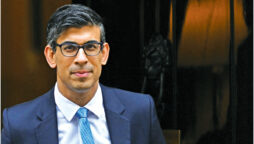
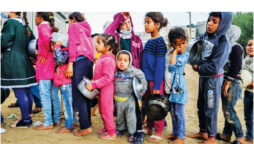
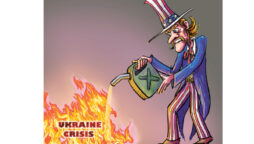
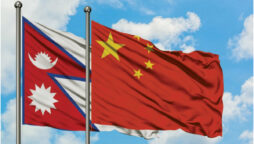
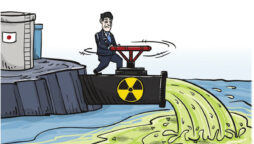

 Read the complete story text.
Read the complete story text. Listen to audio of the story.
Listen to audio of the story.